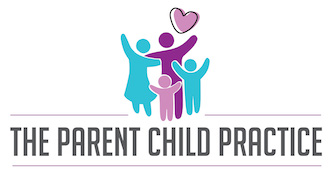As a clinician trained in School Psychology, I receive numerous phone calls from parents or adults interested in psychoeducational testing (learning disabilities testing). In fact, this is a great deal of the types of calls that I receive because of my professional background and training. During my conversations with callers, I am often asked, “What happens during testing?” This is an extremely common question for me and I get it. People feel a lot of anxiety when they don’t know what to expect. Therefore, I am always glad to answer that question. I hope that by writing this blog post I can answer this commonly asked question for anyone looking for information about what is involved in psychoeducational/learning disabilities testing.
Here are some things that will happen during a psychoeducational evaluation and some things that won’t happen:
1. I will not only test for one suspected area of weakness.
Families sometimes call my office and ask me to test for just a suspected math disability or a suspected spelling weakness or test for only academic delays and not look at any possible underlying emotional concerns. That is NOT a comprehensive evaluation and is not good practice for those that work in the field of School/Child Psychology.
A good evaluation should be comprehensive and should not assume only one weakness just because it is reported anecdotally by a parent or teacher. Spelling weaknesses may be the reflection of weaknesses in word decoding, poor phonemic awareness or poor knowledge of letter-sound relationships, and these weaknesses may also impact the overall writing ability of a child. Additionally, a child with poor word decoding may also be strong in basic math computation but struggle with math word problems. It is important that I look at all academic areas when completing a psychoeducational evaluation so that I can know how that particular child is impacted in school.
It is also important that the evaluation examines how the suspected academic weakness impacts that child’s self-esteem and self-concept and if it contributes to feelings of anxiety, depression, or disruptive behaviors. Additionally, a good evaluation also wants to ensure that there are no “hidden” or co-morbid medical concerns like Attention Deficit Hyperactivity Disorder that are impacting academic struggles.
2. I will not provide the testing results interpretation and give you a diagnosis for your child the same day.
I am always surprised when families ask me on the phone or at an initial interview appointment, “Will I get the results of my testing right after you finish testing my child?” That question is always a good reminder to me that, 1) I take it for granted that I am very entrenched in this work. Therefore, it is important that I frequently remind myself to view this process through the lens of those who are brand new to psychology and the psychoeducational testing process so that I can do a good job providing detailed information about the process. 2) There are possibly some practices out there that don’t spend as much time as I do, analyzing the testing results in order to make a well validated conclusion about a child’s specific needs.
Psychoeducational testing in my office typically does not occur during one visit. A psychoeducational evaluation involves administering a number of testing instruments and, therefore, for most individuals it is divided over multiple appointments. I also prefer to have multiple appointments for a child because it allows me to observe the child several times so that I can have a better idea of the child’s functioning.
3. I am available to help you understand the investment required for a psychoeducational evaluation.
As a parent, I have experienced the sticker shock of medical costs and, therefore, I am sensitive to parents need to understand the pricing for a psychoeducational evaluation. Nearly all health insurances exclude coverage for psychoeducational evaluations. This is because children suspected of having a disability are entitled to an evaluation through their public system, even if they attend a private school. Of course I know, as a school psychologist, that the challenge is that school districts are overloaded with evaluations and have very strict standards about who qualifies for an evaluation and whether a child’s learning difficulty is having an adverse impact on their educational performance. Therefore, I am always willing to discuss with parents the possible instruments given to a child, the estimated time involved in the testing process, and help parents determine how they can pay for their evaluation prior to the completion of testing.
4. I will not write a report that doesn’t really help your child and family.
After the testing has been completed and school paperwork is returned, I will write a detailed report that will clarify the strengths and weaknesses of your child related to learning and school work. If necessary, I will help you determine the best type of academic environment for your child, provide you with academic interventions, and information about local supports for children with academic related disabilities. I will also suggest possible academic accommodations or modifications that may be useful for the school to consider if a child is deemed eligible for school services. If your child is older or an adult, I will also make sure that the testing is suitable for seeking accommodations on high stakes testing such as the SAT, GMAT, GRE, LSAT and licensing boards of various disciplines. My goal is for families or an individual to have a report that serves as a roadmap for their future and provides guidance on how they can become successful as a person with a disability.



